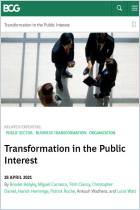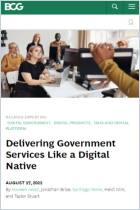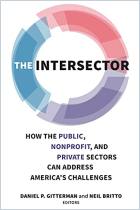Payroll. IT. Finance. HR. Fleet and facilities maintenance. Printing. Parking. Mail. Events. Each service has a unique provider. Each requires a unique business relationship and all the time tracking, requests, notifications and troubleshooting that implies. Keeping up with services is a job in itself, leading to clunky processes and different approaches to regulations. The answer to all this chaos? Shared services. This report by the Boston Consulting Group gives a primer on how government organizations can take advantage of the value offered by a shared services approach.
A shared services approach decreases costs, optimizes processes, improves customer and employee experiences, and reduces risk, even for government organizations.
When you think of situations where finance, procurement, legal, IT, HR, and other important services are shared, you probably think of the private sector, where a shared services approach has led to rapid transformation. Government entities are lagging on shared services despite the benefits.
So why isn’t a shared services approach more common at the local, state and federal levels? Public sector entities suffer from inflexible budgets, and elected officials lack incentivization to make a change that will only pay off further down the road – and not before the next election. Still, when a shared services approach is attempted in the public sector, the payoffs can be huge for customers, employees and the organization’s bottom line.
To make shared services implementation...
Danny Werfel, Andrew Toma, Brooke Bollyky, Rashi Agarwal and Maggie Larkin are professionals with the Boston Consulting Group.




















Comment on this summary or Iniciar a Discussão